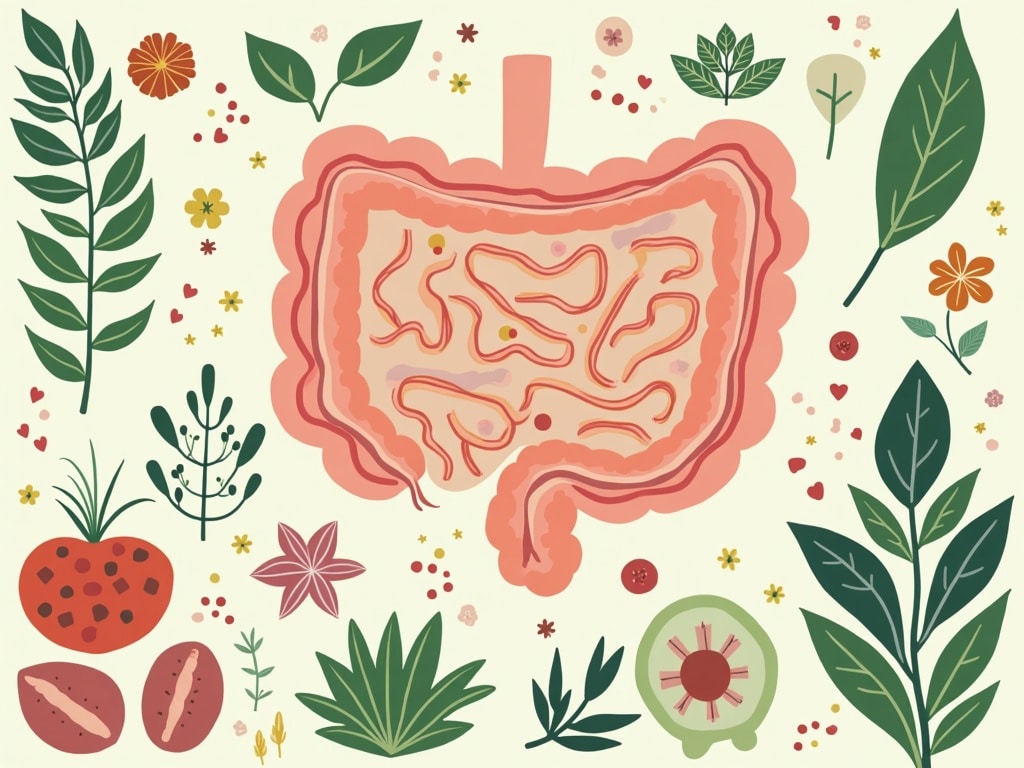7 Telling Signs You Need More Probiotics in Your Life
Think of your gut as a bustling metropolis, teeming with trillions of microorganisms, both good and bad. When the balance tips in favor of the bad guys, chaos ensues. Probiotics, those friendly live bacteria, can help restore order and harmony. But how do you know if your gut city is in dire need of reinforcements? Sometimes, the signs are subtle, other times, they're blaring like a broken car alarm. Let's explore the seven most telling signals that your body is screaming for more probiotics.
1. Digestive Distress: The Uncomfortable Truth
Are you constantly battling bloating, gas, constipation, or diarrhea? These digestive woes are often the most obvious indicators of an imbalanced gut. Probiotics contribute to smoother digestion by aiding in the breakdown of food and nutrient absorption. When the good guys are outnumbered, the bad guys can run rampant, leading to fermentation, inflammation, and general digestive upset. It's like a dysfunctional assembly line where things get backed up or explode unexpectedly. If you find yourself reaching for antacids or digestive aids more often than you’d like, it might be time to consider adding probiotics to your regimen.
The Science Behind the Symptoms
The gut microbiome plays a crucial role in regulating bowel movements and reducing inflammation. Probiotics help to:
- Produce short-chain fatty acids (SCFAs) like butyrate, which nourish the gut lining and reduce inflammation.
- Improve gut motility, speeding up or slowing down digestion as needed.
- Crowd out harmful bacteria that contribute to digestive issues.
2. Frequent Illnesses: A Weakened Immune System
Did you know that roughly 70% of your immune system resides in your gut? When your gut flora is out of whack, your immune defenses weaken, making you more susceptible to colds, flu, and other infections. Probiotics stimulate the production of antibodies and immune cells, strengthening your body's ability to fight off invaders. Think of them as tiny soldiers patrolling your gut, ready to defend against harmful pathogens. If you find yourself catching every bug that comes your way, it's a clear sign your immune system needs a boost from probiotics.
How Probiotics Bolster Immunity
Probiotics enhance immunity through several mechanisms:
- Increasing the production of immunoglobulin A (IgA), an antibody that protects against infections.
- Stimulating the activity of natural killer (NK) cells, which destroy virus-infected cells.
- Promoting the growth of beneficial bacteria that compete with harmful pathogens for nutrients and space.
3. Skin Problems: More Than Just Skin Deep
Acne, eczema, psoriasis, and rosacea – these skin conditions can be linked to gut health. An imbalanced gut can lead to increased inflammation throughout the body, which often manifests as skin problems. Probiotics can help reduce inflammation and improve the skin's barrier function. They can also combat harmful bacteria that contribute to acne and other skin irritations. Your skin is essentially a reflection of what's happening inside your gut. If you're struggling with persistent skin issues, addressing your gut health with probiotics might be the missing piece of the puzzle.
The Gut-Skin Connection Explained
The gut and skin are connected through the gut-skin axis, a complex network of interactions involving the immune system, hormones, and the nervous system. Here's how gut dysbiosis can affect your skin:
- Increased intestinal permeability (leaky gut) allows toxins and inflammatory substances to enter the bloodstream, triggering skin inflammation.
- An imbalanced gut microbiome can disrupt hormone levels, contributing to acne and other skin conditions.
- Probiotics can help restore a healthy gut microbiome, reduce inflammation, and improve skin barrier function.
4. Mood Swings and Mental Fog: The Gut-Brain Axis
Believe it or not, your gut and brain are in constant communication via the gut-brain axis. An unhealthy gut can influence mood, cognitive function, and even mental health conditions like anxiety and depression. Probiotics can produce neurotransmitters like serotonin and dopamine, which play a crucial role in regulating mood. They can also reduce inflammation in the brain and improve cognitive function. If you're experiencing frequent mood swings, brain fog, or difficulty concentrating, your gut might be sending distress signals to your brain.
The Science of the Gut-Brain Connection
The gut-brain axis is a bidirectional communication system that involves:
- The vagus nerve, which directly connects the gut to the brain.
- Neurotransmitters produced in the gut that can influence brain function.
- The immune system, which can trigger inflammation in both the gut and the brain.

5. Sugar Cravings: The Uncontrollable Urge
Do you find yourself constantly craving sugary treats, even when you're not hungry? An overgrowth of bad bacteria in your gut can fuel these cravings. Many harmful bacteria thrive on sugar, and they send signals to your brain to demand more. Probiotics can help shift the balance in favor of beneficial bacteria, which don't have the same sugar addiction. As the good guys take over, your sugar cravings will naturally diminish. Breaking free from the sugar cycle starts with nurturing your gut with probiotics.
How Gut Bacteria Influence Sugar Cravings
Here's the breakdown of how gut bacteria affect your cravings:
- Harmful bacteria feed on sugar, producing byproducts that can trigger inflammation and cravings.
- These bacteria can manipulate your taste receptors and send signals to your brain to crave more sugar.
- Probiotics can help reduce the population of sugar-loving bacteria and restore a healthier gut environment.
6. Bad Breath: More Than Just Oral Hygiene
While poor oral hygiene is a common cause of bad breath, an imbalanced gut can also contribute to the problem. Harmful bacteria in your gut can produce volatile sulfur compounds (VSCs), which are released through your breath. Probiotics can help reduce the levels of these VSCs and improve breath odor. If you've ruled out other causes of bad breath, such as tooth decay or gum disease, consider that your gut might be the culprit.
The Link Between Gut Health and Breath
Here's how the gut influences your breath:
- An imbalanced gut microbiome can lead to the production of volatile sulfur compounds (VSCs).
- These VSCs are absorbed into the bloodstream and released through the lungs, causing bad breath.
- Probiotics can help reduce the levels of VSCs and improve breath odor.
7. Food Intolerances: The Body's Rejection
Developing new food intolerances can be a sign of an imbalanced gut. When your gut lining is compromised (often referred to as leaky gut), undigested food particles can enter the bloodstream, triggering an immune response. This can lead to inflammation and the development of intolerances to previously tolerated foods. Probiotics can help strengthen the gut lining and reduce inflammation, making you less likely to react to certain foods. If you suddenly find yourself unable to eat foods you once enjoyed, it's worth investigating your gut health.
The Role of Probiotics in Food Intolerance
Probiotics contribute to reducing food intolerances by:
- Strengthening the gut lining, reducing intestinal permeability (leaky gut).
- Modulating the immune system, preventing exaggerated responses to food antigens.
- Improving digestion, reducing the amount of undigested food that enters the bloodstream.
Choosing the Right Probiotic for Your Needs
Not all probiotics are created equal. Different strains of bacteria offer different benefits. When choosing a probiotic supplement, consider the following:
- Strain Diversity: Look for a probiotic with multiple strains of bacteria, such as Lactobacillus and Bifidobacterium.
- CFU Count: CFU stands for colony-forming units, which indicates the number of live bacteria in each dose. Choose a probiotic with a CFU count appropriate for your needs (typically between 1 billion and 100 billion).
- Third-Party Testing: Opt for probiotics that have been tested by a third-party to ensure quality and potency.
- Specific Concerns: Research different strains to target specific health concerns, such as digestive issues, immune support, or mood enhancement.
Incorporating probiotics into your daily routine can be a game-changer for your overall health. Listen to your body, pay attention to the signs, and choose a probiotic that suits your individual needs. Your gut will thank you for it, and you'll feel the positive ripple effects throughout your entire being. So, next time you experience any of these signs, remember that a little probiotic boost might be just what you need to restore harmony to your inner ecosystem and reclaim your well-being.

